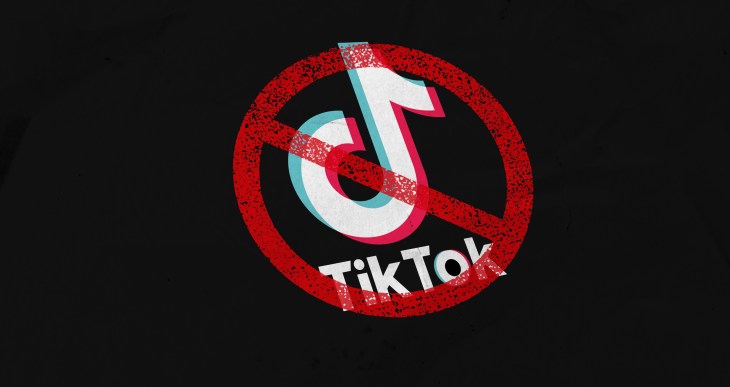The impact of TikTok’s ban in other countries could signal what’s ahead for the U.S.

On April 24, U.S. President Joe Biden signed a bill that would ban TikTok if its owner ByteDance doesn’t sell the app.
The bill requires ByteDance to secure a deal within nine months, with a 90-day extension available to close it. After this deadline, the U.S. will bar app stores from listing the app.
TikTok will challenge this decision in courts with a long legal battle ahead of us. But many countries worldwide have already banned the app, and ByteDance hasn’t had a chance to revive it. These moves impacted ByteDance’s operations in those countries, creators, as well as startups related to the creator economy.
Here’s how those bans are playing out in other markets.
- India: This is perhaps the most well-known TikTok ban as India is one of the biggest consumer markets in the world. In June 2020, the Indian government banned the short video app along with many other Chinese apps citing national security reasons. ByteDance’s other popular app Helo was also a part of the list of banned apps at that time.

Members of the Working Journalist of India (WJI) hold placards urging citizens to remove Chinese apps and stop using Chinese products during a demonstration against the Chinese newspaper Global Times, in New Delhi on June 30, 2020. – TikTok on June 30 denied sharing information on Indian users with the Chinese government, after New Delhi banned the wildly popular app citing national security and privacy concerns.
“TikTok continues to comply with all data privacy and security requirements under Indian law and have not shared any information of our users in India with any foreign government, including the Chinese Government,” said the company, which is owned by China’s ByteDance. (Photo by Prakash SINGH / AFP) (Photo by PRAKASH SINGH/AFP via Getty Images)
- Afghanistan: In 2022, the Taliban banned TikTok along with PlayerUnkown’s Battleground (PUBG) for “misleading youth.” In February, Wired reported that many creators in the country used VPNs to make videos and reach different audiences through TikTok. The report noted that TikTok users in Afghanistan were estimated to be anywhere between 325,000 to 2 million.
- Uzbekistan: Uzbekistan has placed restrictions on TikTok’s usage in the country since July 2021. In 2022, lawmakers proposed a complete ban after several people used VPNs to use the service.
- Senegal: In August 2023, Senegal blocked TikTok in the aftermath of the sentencing of opposition leader Ousmane Sonko. Citizens used the platform to register dissent resulting in a ban. In October, authorities demanded that ByteDance create a way for officials to remove accounts.
- Somalia: Somalia banned TikTok — along with Telegram and betting site 1xBet — around the same time as Senegal. However, Somali authorities cited that these platforms were used to “spread horrific content and misinformation to the public.”
- Kyrgyzstan: August 2023 wasn’t a great month for TikTok. Kyrgyz authorities also barred the platform, deeming it harmful to “the health and development of children.” The country’s culture ministry added that teens were trying to reenact certain videos, causing danger to their lives.
- Nepal: Nepal banned TikTok in November 2023 because the government believed the app disrupted “social harmony” and had an impact on “family and social structures.” The authorities were also concerned about growing cybercrime on the platform, with local media reporting 1,600 TikTok-related cases in the last four years. According to a BBC Media action report published in 2023, TikTok was the country’s third most popular social media platform after YouTube and Facebook.
- Other bans: Iran has banned most major social networks in the country, including TikTok. However, the exact date of the ban is unknown. Apart from that, several countries and regions, including the U.S., Canada, the U.K., Belgium, the EU, New Zealand and Australia have barred TikTok from official devices.
Impact of the bans
Multiple reports have captured the impact of the TikTok ban on creators who were reliant on the short video platform for reach and even money making. Many small businesses also use TikTok to promote their brands in different ways.
In many ways, India banning TikTok was a pivotal moment as Instagram rushed to release Reels in India to replace the platform. Meta (then Facebook) launched Reels in the U.S. a few months later. YouTube also followed suit by introducing Shorts in India.
However, TikTok’s ban also gave rise to many local short video apps. Twitter and Google-backed local social network ShareChat released Moj; Verse Innovation (parent company of news aggregator DailyHunt) launched Josh, Times Internet launched MX Takatak and eventually merged it with Moj in 2022; ad company InMobi released Roposo with other rivals like Mitron, Chingari, and Trell also trying to capture the market.
Developers in Nepal also launched a TikTok rival called Ramailo in November 2023, but its lifespan was short-lived.
Because of multiple apps, creators have had to invest in putting their content on multiple platforms. Critically, these platforms might not be putting short videos front and center like TikTok, and their recommendation algorithm might also differ, causing creators to lose their audience. A similar impact could occur in the U.S., as creators scramble to find a new platform or platforms for their work — even if only to hedge against the possibility that TikTok’s influence wanes under the threat of a ban.
In the aftermath of India banning TikTok, ByteDance had to scale back its operations. Earlier this year, the company’s music streaming service, Resso, was also shut down in India after the government asked app stores to pull the app.
Aside from the impact on creators, digital rights activists have also made arguments that banning platforms like TikTok curtails free speech. Some of these angles might play out in the U.S., too, as the government and ByteDance will indulge in legal battles.
Last year, FCC Commissioner Brendan Carr said that India set an “incredibly important precedent” by banning TikTok in 2020. Carr mentioned at that time that the U.S. needs to follow India’s lead to remove nefarious apps.




